Sermons
How then shall they call on him in whom they have not believed? and how shall they believe in him of whom they have not heard? and how shall they hear without a preacher? And how shall they preach, except they be sent? as it is written, How beautiful are the feet of them that preach the gospel of peace, and bring glad tidings of good things! But they have not all obeyed the gospel. For Esaias saith, Lord, who hath believed our report? So then faith cometh by hearing, and hearing by the word of God (Romans 10:14-17).
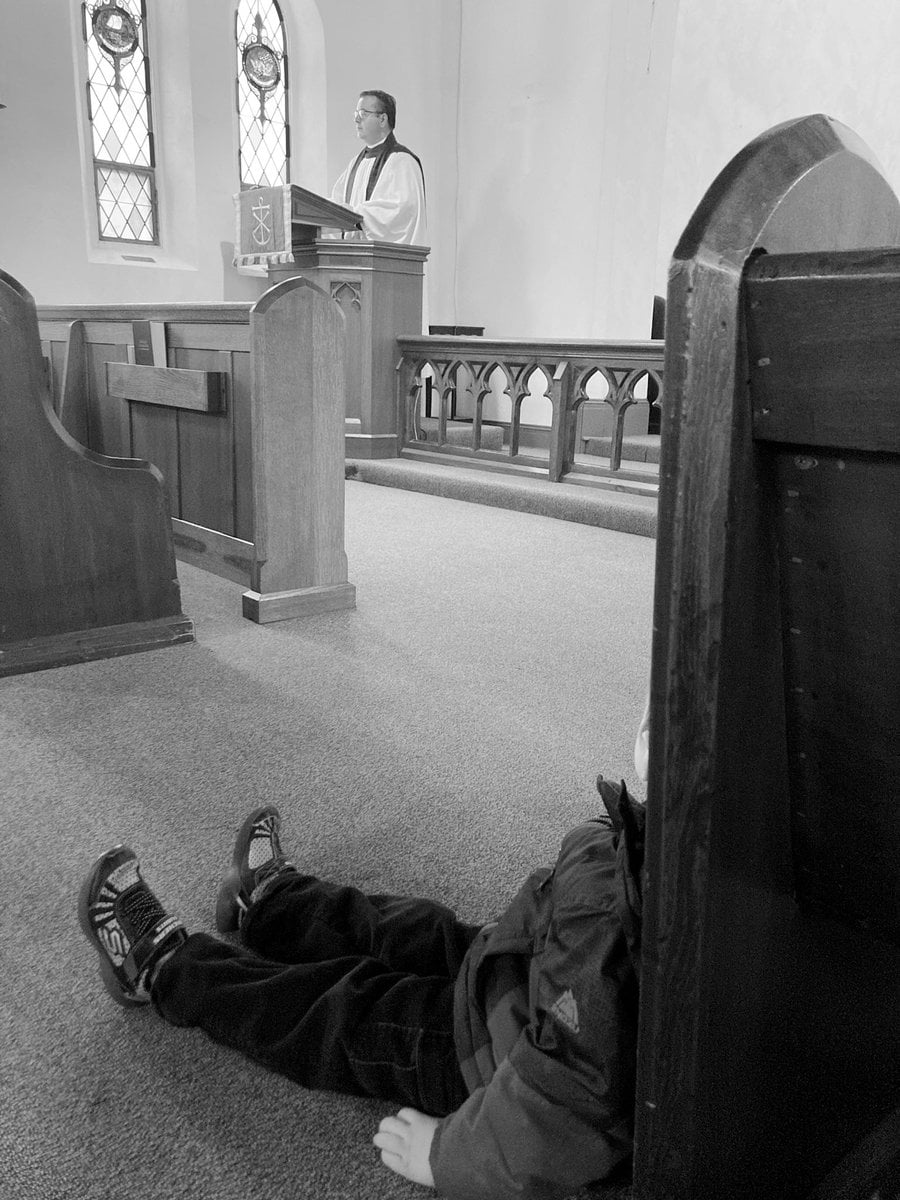

Septuagesima 2025
Knowing that, who then could possibly care if they were first or last? Who could possibly imagine being cheated by the God we see before us today? The only hope for us all is the divine, otherworldly justice we find revealed in the crucified body of the Son of God, revealed in the last psalm on the lips of the martyr, revealed in the tears of the repentant sinner, revealed in the shocked look of the baptized baby and the last Communion feast of the dying saint. Let us then both work and rest in the liberating generosity of the vineyard’s master who beckons us even now to trust in His victory, to trust that the work we do in His kingdom has eternal value because through Christ we have been given a portion of His eternal glory.
Sermon Date: February 16, 2025
Passage: Matthew 20

The Fifth Sunday after the Epiphany 2025
Thus, it is not God who is to blame for the corruption of His good creation, and so screaming out, ‘Why doesn’t God do something,’ is nonsense because God is not the author of evil; we are. God is not responsible in any real way for cleaning up the terrible mess we have made through our mad participation in sin and death. In any event, when someone asks that question, he isn’t actually looking for justice in any meaningful sense; he is like a spoiled child cursing his parents after he breaks the new toy they have just gifted him. And if the question is instead deployed as some kind of iron-clad means of disproving God’s existence, it fails in the same way that someone standing in my neighbor’s unmowed yard, while screaming, ‘Why doesn’t Pastor Richard mow this lawn?’, doesn’t prove or disprove my existence. In short, when humanity joins with Satan and attempts to rebelliously rule the earth by our own code, we cannot then demand God save us in the way we would like to be saved; we cannot demand that God surrender to us while we demand His help?
Sermon Date: February 9, 2025
Passage: Matthew 13

The Presentation of Christ in the Temple 2025
Simeon and Anna, on the other hand, represent the holy remnant through which again and again the Holy Ghost showcases His power over and against the unfaithful men who too often try to lead His people astray. Just because the temple has been taken over by priests who don’t believe in the resurrection doesn’t mean that God isn’t working in history to bring salvation to His people. Those traitors were not strong enough to upend the purposes of God or destroy the faith of those who hunger and thirst for righteousness: those false pastors didn’t put that faith in Simeon, and so they have no power to take it from him. In fact, Simeon stands as the vessel of their condemnation, for the sovereign God has reached through time and space to make this faithful old man’s name be remembered by the saints of God long after the names of those unfaithful priests have been burned out of history by God’s holy fire.
Sermon Date: February 2, 2025
Passage: Luke 2
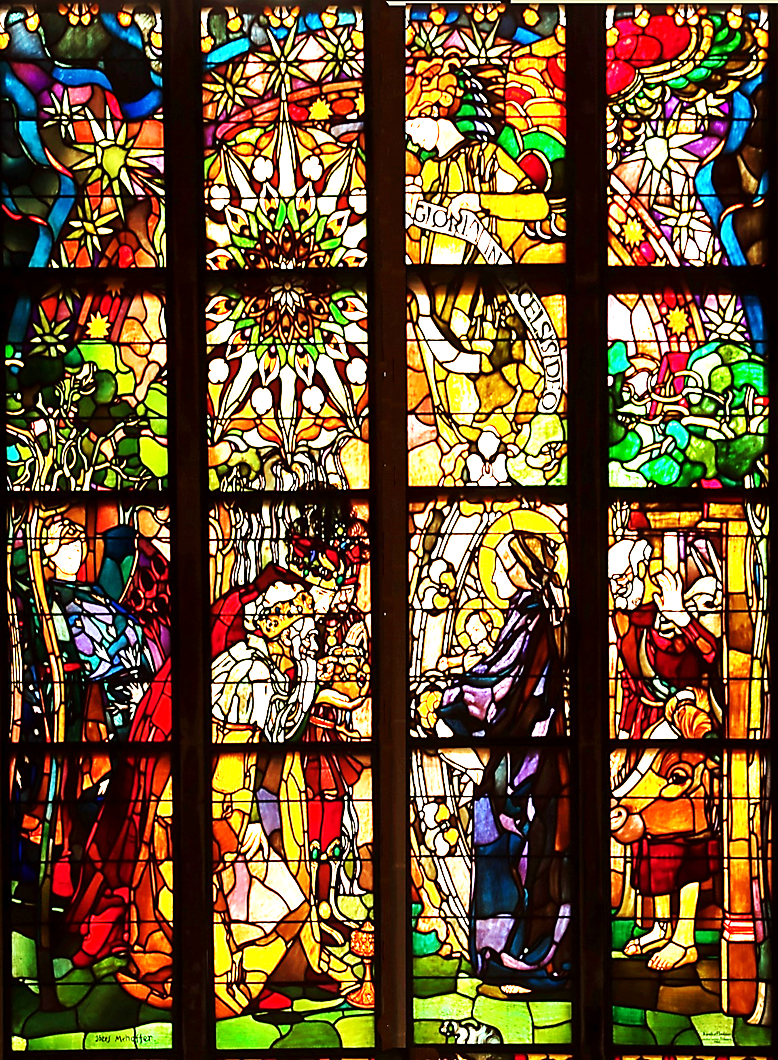
The Third Sunday after the Epiphany 2025
To be a follower of Christ is to accept that our temporary embarrassment or humiliation or pain or death is completely worth it if through our sacrifice even one soul can see the reflection of Calvary in our lives. Remember, St. Paul is not asking for us to give God something that isn’t already His; if we are ransomed souls, if we are saved, then we already belong to God, and He is simply instructing us how to use the life Christ bought back from the abyss. Our dutiful and holy participation in the Christian life serves as a reflection to men and angels and demons—to all creatures—that evil can be stopped, and if evil can be stopped once, it can be stopped again and again and again. We can stop making deposits in the bank of human misery because the riches of Christ are already ours.
Sermon Date: January 26, 2025
Passage: Romans 12
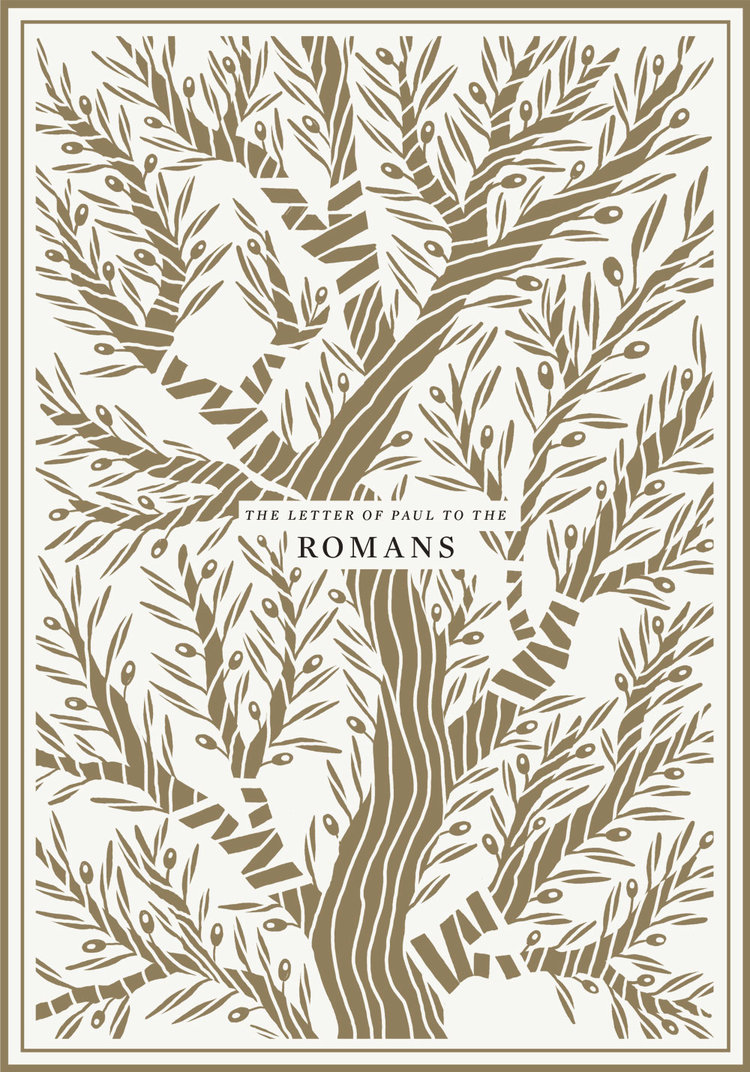
The Second Sunday after the Epiphany 2025
Until verse 9 of chapter 12, ἀγάπη—the word Paul uses to describe genuine, sacrificial love—had always been used to describe the divine love, publicly revealed in the Son’s sacrifice of Himself for the sins of the world, but here (in the already in-breaking new world Christ’s resurrection made a sure reality) Paul reveals that a Christian’s love for others will be infused with a divine character. Our love, through the power of the Holy Spirit, will be painful as we shed layer after layer of the unnecessary trappings of this fallen world—as we focus our lives on uttering the unconditional, ‘YES,’ to all that Christ asks of us. Yes, I will be my brother’s keeper. Yes, I will zealously seek out good works for the kingdom of God. Yes, I will rejoice in the face of the violent and seductive tribulations of the fallen world. Yes, I will pray like I’m before the throne room of the Almighty God. Yes, I will open the home Christ gave me to bring the lost into His kingdom. Yes, I will do all of that and more because I am ready to be so fervent in thy Spirit that I burn on His altar as a sign and symbol to all men that God is on the march and wrath and love are coming with Him. We will be scarred in this world if we are Christ’s, but we can take it if the measure of our strength is God and not man.
Sermon Date: January 19, 2025
Passage: Romans 12
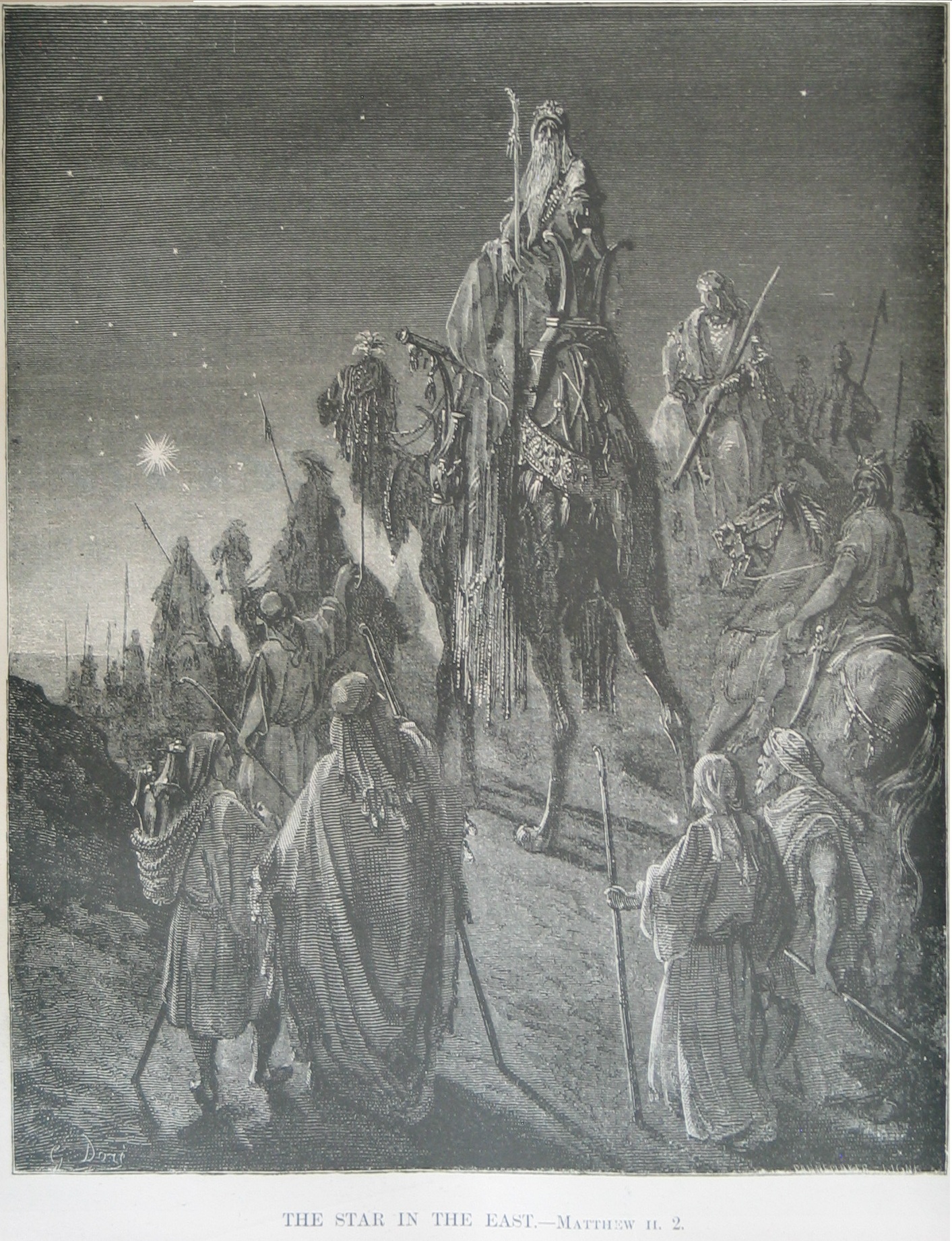
The First Sunday after the Epiphany 2025
But, God has defeated death. God embraces dead children just as He embraces repentant murderers remade into the children of God. How? The young child those first Gentile wisemen came to worship grew up to rebuild the broken unity between Man and God by writing a peace treaty in His own blood upon the Cross and sending God the Holy Spirit to transform the whitewashed tombs of our hearts into living temples fit for God to dwell. The first Gentiles to worship in the heart of God’s living temple were the wiseman representing the nations of the world bowing down in worship before God incarnate: these men were the first fruits of a new world in which Jew and Gentile are united in life through the holy worship now available to a new human race capable of once again walking with God as Adam and Eve walked with Him in the garden.
Sermon Date: January 12, 2025
Passage: Romans 12

The Second Sunday after Christmas 2025
Abraham was called by God to be a father despite being an old man with no children. He was a man with no future; a grim casualty of a world made cruel and twisted by humanity’s failure to rise above our shared slavery to sin and death. It would be hard to imagine someone less likely to be called out of our world to be the father of many nations than Abraham. In fact, it might seem like a cruel, cosmic joke for God to command Abraham to take his barren wife Sarah away from the only family they had to become strangers in a strange land: a land filled with warlords and child sacrifice, pain and betrayal. But of course, we are meant to see in Abraham’s unsuitability and peril the shimmering outline of our own calling into the family of God. For without Christ, what future do you and I have? We can try to rage and fight against the darkness or become its pathetic servant, but no amount of anger or groveling will hold back the darkness: it is as futile as screaming at a sunset. No, we too must, ‘…get thee out of thy country, and from thy kindred, and from thy father’s house, unto a land that I will shew thee. (Genesis 12:1). Abraham is our father because we are of the chosen, but he was also our father in sharing with us the desperate need to be delivered, and so he is our father when we leave the familiar lands of sin and death to journey to the promised land Jesus Christ has built with His true heart and loving obedience. God’s unmerited mercy on Abraham is our story; it is the beginning of how we and our children will make it home alive—how we will fill the mansions of the new heaven and earth with the holy family death can no longer rip away from us. We need not scream at the sunset if we know the Son will rise and never set.
Sermon Date: January 5, 2025
Passage: Romans 4
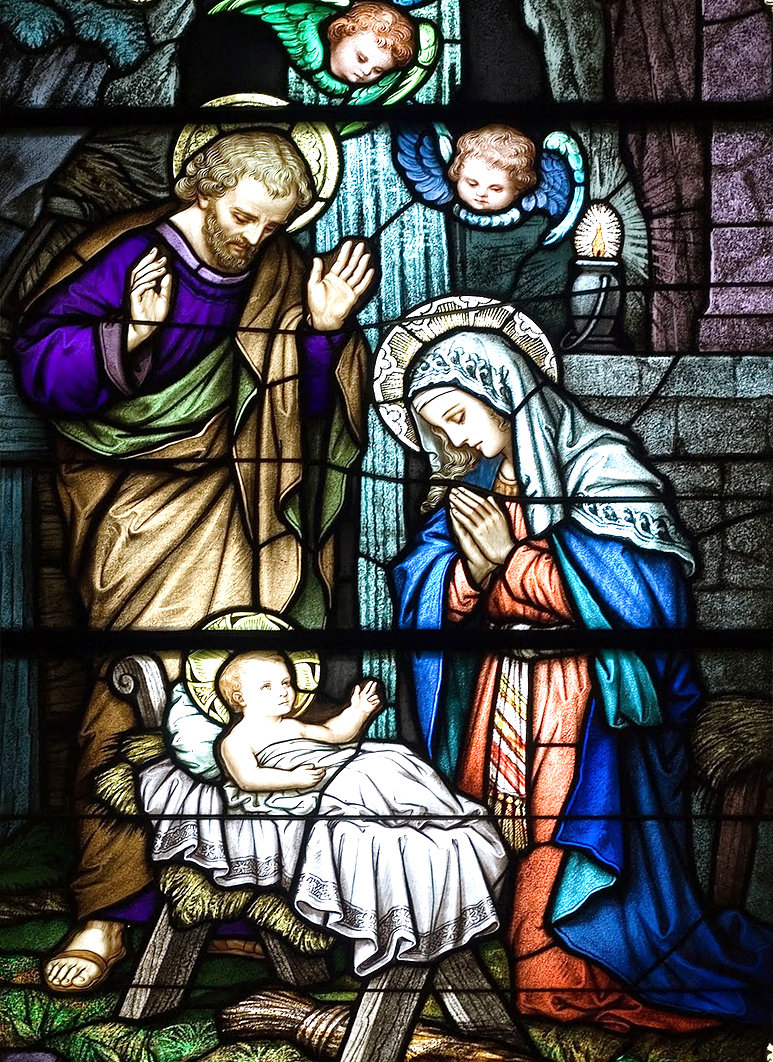
The Sunday after Christmas 2024
But, as St. Paul tells us today, it doesn’t have to be this way. The apostle considers the faces of the Galatian church, the men and women who lived hard lives beset at all times by the urgent need to survive, and he knows that by all accounts he is making their day to day lives harder by introducing them to the truth; he knows the alienation and sacrifice that will come from being a follower of Christ—he’s living it, and it will eventually kill him—but he also knows that he must tell them the truth. What is the truth? For those truly in Christ, the God who created us has redeemed us and adopted us. It is simple, beautiful, and true, but what does it mean?
Sermon Date: December 29, 2024
Passage: Galatians 4
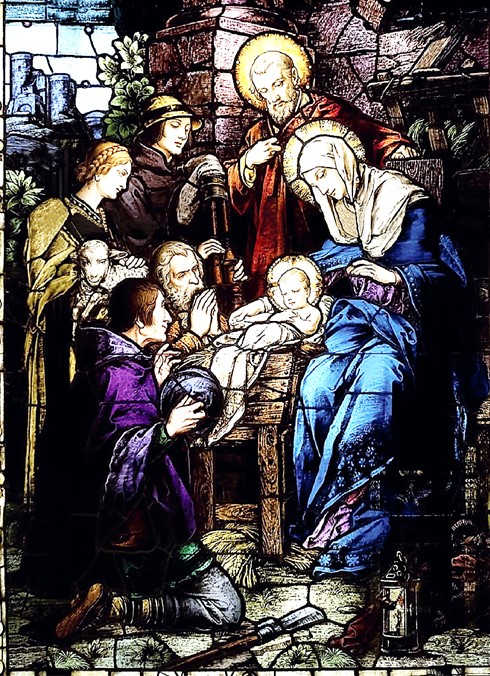
Christmas Day 2024
Jesus Christ has come to restore what was lost in Adam. That first man who failed to protect the world from evil will have his humanity vindicated by the second Adam born not into a luscious garden crafted to meet his every need; no, it is the sinful world Adam and his children of shame and fear covered with the excrement of sin that our Lord enters, not as a man, but as a defenseless child. The power and majesty, strength and courage displayed in this act are the stuff of legend. The Son of God has such utter trust in the goodness and love of His Father that He volunteers to descend into our murky world of lies and betrayal as a child just as He will trust that same Father’s faithfulness and justice when He dies on the Cross and descends into the darkness of death.
Sermon Date: December 25, 2024
Passage: Hebrews 1

The Fourth Sunday after Advent 2024
If we work on these positive virtues, we won’t have much time or energy left to get into trouble. Our lives will be gracious, moderate in every sense, and an invitation to others to share the happiness of a peace with God that passes understanding. But, grace and peace begin with God ruling our lives, and so it begins to make sense why so many of our fellow men have attacked the ancient and changeless virtues. Too much of our society loves disorder and strife; in our sick world it is increasingly how people build followers and platforms and all the rest. So, when they talk of ‘teaching values,’ they really mean the anti-values and anti-virtues of selfishness, self-rule, self-esteem, and the dark moral evil which bubbles up from those who make their desires their god. We should expect nothing less from anti-Christs.
Sermon Date: December 22, 2024
Passage: Philippians 4
